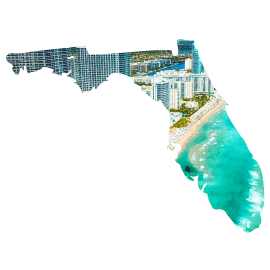Secondary Teacher Preparation in Science:
Florida
Delivering Well Prepared Teachers Policy
Analysis of Florida's policies
Commendably, Florida does not offer a certification in general science for secondary teachers.
Middle school science teachers in Florida must earn at least a bachelor's degree in general science or middle grades general science or a bachelor's degree with 18 semester hours in science that includes credit in biological science, chemistry or physics, and earth-space science or earth science. They must also pass the FTCE "Middle Grades General Science" exam.
Florida has approved the repeal of its middle grades integrated curriculum certification, which will now ensure specific content certification rather than an integrated model.
Recommendations for Florida
State response to our analysis
Florida was helpful in providing NCTQ with the facts necessary for this analysis.
Select another topic
Delivering Well Prepared Teachers
- Admission into Preparation Programs
- Elementary Teacher Preparation
- Elementary Teacher Preparation in Reading Instruction
- Elementary Teacher Preparation in Mathematics
- Middle School Teacher Preparation
- Secondary Teacher Preparation
- Secondary Teacher Preparation in Science
- Secondary Teacher Preparation in Social Studies
- Special Education Teacher Preparation
- Assessing Professional Knowledge
- Student Teaching
- Teacher Preparation Program Accountability
Expanding the Pool of Teachers
Identifying Effective Teachers
- State Data Systems
- Evaluation of Effectiveness
- Frequency of Evaluations
- Tenure
- Licensure Advancement
- Equitable Distribution

